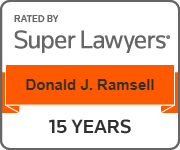Virginia DUI Law - Virginia DUI Laws
Contact a Virginia DUI Attorney from "America's DUI Attorneys"TM
§ 18.2-266. Virginia DUI Driving motor vehicle, engine, etc., while intoxicated, etc.
It shall be unlawful for any person to drive or operate any motor vehicle, engine or train (i) while such person has a blood alcohol concentration of 0.08 percent or more by weight by volume or 0.08 grams or more per 210 liters of breath as indicated by a chemical test administered as provided in this article, (ii) while such person is under the influence of alcohol, (iii) while such person is under the influence of any narcotic drug or any other self-administered intoxicant or drug of whatsoever nature, or any combination of such drugs, to a degree which impairs his ability to drive or operate any motor vehicle, engine or train safely, (iv) while such person is under the combined influence of alcohol and any drug or drugs to a degree which impairs his ability to drive or operate any motor vehicle, engine or train safely, or (v) while such person has a blood concentration of any of the following substances at a level that is equal to or greater than: (a) 0.02 milligrams of cocaine per liter of blood, (b) 0.1 milligrams of methamphetamine per liter of blood, (c) 0.01 milligrams of phencyclidine per liter of blood, or (d) 0.1 milligrams of 3,4-methylenedioxymethamphetamine per liter of blood. A charge alleging a violation of this section shall support a conviction under clauses (i), (ii), (iii), (iv), or (v).
For the purposes of this article, the term "motor vehicle" includes mopeds, while operated on the public highways of this Commonwealth.
(Code 1950, § 18.1-54; 1960, c. 358; 1975, cc. 14, 15; 1977, c. 637; 1984, c. 666; 1986, c. 635; 1987, c. 661; 1992, c. 830; 1994, cc. 359, 363; 1996, c. 439; 2005, cc. 616, 845.)
§ 18.2-266.1. Persons under age 21 driving after illegally consuming alcohol; penalty.
A. It shall be unlawful for any person under the age of 21 to operate any motor vehicle after illegally consuming alcohol. Any such person with a blood alcohol concentration of 0.02 percent or more by weight by volume or 0.02 grams or more per 210 liters of breath but less than 0.08 by weight by volume or less than 0.08 grams per 210 liters of breath as indicated by a chemical test administered as provided in this article shall be in violation of this section.
B. A violation of this section shall be punishable by forfeiture of such person's license to operate a motor vehicle for a period of six months from the date of conviction and by a fine of not more than $500. This suspension period shall be in addition to the suspension period provided under § 46.2-391.2. The penalties and license forfeiture provisions set forth in §§ 16.1-278.9, 18.2-270 and 18.2-271 shall not apply to a violation of this section. Any person convicted of a violation of this section shall be eligible to attend an Alcohol Safety Action Program under the provisions of § 18.2-271.1 and may, in the discretion of the court, be issued a restricted license during the term of license suspension.
C. Notwithstanding §§ 16.1-278.8 and 16.1-278.9, upon adjudicating a juvenile delinquent based upon a violation of this section, the juvenile and domestic relations district court shall order disposition as provided in subsection B.
(1994, cc. 359, 363; 1995, c. 31; 2003, c. 605.)
§ 18.2-268.2. Implied consent to post-arrest testing to determine drug or alcohol content of blood.
A. Any person, whether licensed by Virginia or not, who operates a motor vehicle upon a highway, as defined in § 46.2-100, in the Commonwealth shall be deemed thereby, as a condition of such operation, to have consented to have samples of his blood, breath, or both blood and breath taken for a chemical test to determine the alcohol, drug, or both alcohol and drug content of his blood, if he is arrested for violation of § 18.2-266, 18.2-266.1, or subsection B of § 18.2-272 or of a similar ordinance within three hours of the alleged offense.
B. Any person so arrested for a violation of clause (i) or (ii) of § 18.2-266 or both, § 18.2-266.1 or subsection B of § 18.2-272 or of a similar ordinance shall submit to a breath test. If the breath test is unavailable or the person is physically unable to submit to the breath test, a blood test shall be given. The accused shall, prior to administration of the test, be advised by the person administering the test that he has the right to observe the process of analysis and to see the blood-alcohol reading on the equipment used to perform the breath test. If the equipment automatically produces a written printout of the breath test result, the printout, or a copy, shall be given to the accused.
C. A person, after having been arrested for a violation of clause (iii), (iv), or (v) of § 18.2-266 or § 18.2-266.1 or subsection B of § 18.2-272 or of a similar ordinance, may be required to submit to a blood test to determine the drug or both drug and alcohol content of his blood. When a person, after having been arrested for a violation of § 18.2-266 (i) or (ii) or both, submits to a breath test in accordance with subsection B or refuses to take or is incapable of taking such a breath test, he may be required to submit to tests to determine the drug or both drug and alcohol content of his blood if the law-enforcement officer has reasonable cause to believe the person was driving under the influence of any drug or combination of drugs, or the combined influence of alcohol and drugs.
(1992, c. 830; 1993, c. 746; 1994, cc. 359, 363; 1995, c. 23; 2002, c. 748; 2004, c. 1013; 2005, cc. 616, 757, 840.)
§ 18.2-268.3. Virginia DUI Refusal of tests; penalties; procedures.
A. It shall be unlawful for a person who is arrested for a violation of § 18.2-266, 18.2-266.1, or subsection B of § 18.2-272 or of a similar ordinance to unreasonably refuse to have samples of his blood or breath or both blood and breath taken for chemical tests to determine the alcohol or drug content of his blood as required by § 18.2-268.2 and any person who so unreasonably refuses is guilty of a violation of this section.
B. When a person is arrested for a violation of § 18.2-51.4, 18.2-266, 18.2-266.1 or, subsection B of § 18.2-272 or of a similar ordinance and such person refuses to permit blood or breath or both blood and breath samples to be taken for testing as required by § 18.2-268.2, the arresting officer shall advise the person, from a form provided by the Office of the Executive Secretary of the Supreme Court, that (i) a person who operates a motor vehicle upon a highway in the Commonwealth is deemed thereby, as a condition of such operation, to have consented to have samples of his blood and breath taken for chemical tests to determine the alcohol or drug content of his blood, (ii) a finding of unreasonable refusal to consent may be admitted as evidence at a criminal trial, (iii) the unreasonable refusal to do so constitutes grounds for the revocation of the privilege of operating a motor vehicle upon the highways of the Commonwealth, (iv) the criminal penalty for unreasonable refusal within 10 years of a prior conviction for driving while intoxicated or unreasonable refusal is a Class 2 misdemeanor, and (v) the criminal penalty for unreasonable refusal within 10 years of any two prior convictions for driving while intoxicated or unreasonable refusal is a Class 1 misdemeanor. The form from which the arresting officer shall advise the person arrested shall contain a brief statement of the law requiring the taking of blood or breath samples, a statement that a finding of unreasonable refusal to consent may be admitted as evidence at a criminal trial, and the penalties for refusal.
C. The arresting officer shall, under oath before the magistrate, execute the form and certify, (i) that the defendant has refused to permit blood or breath or both blood and breath samples to be taken for testing; (ii) that the officer has read the portion of the form described in subsection B to the arrested person; (iii) that the arrested person, after having had the portion of the form described in subsection B read to him, has refused to permit such sample or samples to be taken; and (iv) how many, if any, violations of this section, § 18.2-266, or any offense described in subsection E of § 18.2-270 the arrested person has been convicted of within the last 10 years. Such sworn certification shall constitute probable cause for the magistrate to issue a warrant or summons charging the person with unreasonable refusal. The magistrate shall attach the executed and sworn advisement form to the warrant or summons. The warrant or summons for a first offense under this section shall be executed in the same manner as a criminal warrant or summons. If the person arrested has been taken to a medical facility for treatment or evaluation of his medical condition, the arresting officer may read the advisement form to the person at the medical facility, and issue, on the premises of the medical facility, a summons for a violation of this section in lieu of securing a warrant or summons from the magistrate. The magistrate or arresting officer, as the case may be, shall forward the executed advisement form and warrant or summons to the appropriate court.
D. A first violation of this section is a civil offense and subsequent violations are criminal offenses. For a first offense the court shall suspend the defendant's privilege to drive for a period of one year. This suspension period is in addition to the suspension period provided under § 46.2-391.2.
If a person is found to have violated this section and within 10 years prior to the date of the refusal he was found guilty of any of the following: a violation of this section, a violation of § 18.2-266, or a violation of any offense listed in subsection E of § 18.2-270, arising out of separate occurrences or incidents, he is guilty of a Class 2 misdemeanor and the court shall suspend the defendant's privilege to drive for a period of three years. This suspension period is in addition to the suspension period provided under § 46.2-391.2.
If a person is found guilty of a violation of this section and within 10 years prior to the date of the refusal he was found guilty of any two of the following: a violation of this section, a violation of § 18.2-266, or a violation of any offense listed in subsection E of § 18.2-270 arising out of separate occurrences or incidents, he is guilty of a Class 1 misdemeanor and the court shall suspend the defendant's privilege to drive for a period of three years. This suspension period is in addition to the suspension period provided under § 46.2-391.2.
(1992, c. 830; 1994, cc. 359, 363; 1997, c. 691; 2001, cc. 654, 779; 2004, cc. 985, 1013, 1022; 2004, Sp. Sess. I, c. 2; 2005, cc. 757, 840.)
§ 18.2-51.4. Maiming, etc., of another resulting from driving while intoxicated.
A. Any person who, as a result of driving while intoxicated in violation of § 18.2-266 or any local ordinance substantially similar thereto in a manner so gross, wanton and culpable as to show a reckless disregard for human life, unintentionally causes the serious bodily injury of another person resulting in permanent and significant physical impairment shall be guilty of a Class 6 felony. The driver's license of any person convicted under this section shall be revoked pursuant to subsection B of § 46.2-391.
B. The provisions of Article 2 (§ 18.2-266 et seq.) of Chapter 7 of Title 18.2 shall apply, mutatis mutandis, upon arrest for a violation of this section.
(1997, c. 691; 1999, cc. 945, 987; 2000, cc. 956, 982.)
§ 29.1-738. Operating boat or manipulating water skis, etc., in reckless manner or while intoxicated, etc.
A. No person shall operate any motorboat or vessel, or manipulate any skis, surfboard, or similar device, or engage in any spearfishing while skin diving or scuba diving in a reckless manner so as to endanger the life, limb, or property of any person.
B. No person shall operate any watercraft, as defined in § 29.1-712, or motorboat which is underway (i) while such person has a blood alcohol concentration at or greater than the blood alcohol concentration at which it is unlawful to drive or operate a motor vehicle as provided in § 18.2-266 as indicated by a chemical test administered in accordance with § 29.1-738.2, (ii) while such person is under the influence of alcohol, (iii) while such person is under the influence of any narcotic drug or any other self-administered intoxicant or drug of whatsoever nature, or any combination of such drugs, to a degree which impairs his ability to operate the watercraft or motorboat safely, (iv) while such person is under the combined influence of alcohol and any drug or drugs to a degree which impairs his ability to operate the watercraft or motorboat safely, or (v) while such person has a blood concentration of any of the following substances at a level that is equal to or greater than: (a) 0.02 milligrams of cocaine per liter of blood, (b) 0.1 milligrams of methamphetamine per liter of blood, (c) 0.01 milligrams of phencyclidine per liter of blood, or (d) 0.1 milligrams of 3,4-methylenedioxymethamphetamine per liter of blood.
C. For purposes of this article, the word "operate" shall include being in actual physical control of a watercraft or motorboat and "underway" shall mean that a vessel is not at anchor, or made fast to the shore, or aground.
Any person who violates any provision of this section shall be guilty of a Class 1 misdemeanor.
(1960, c. 500, § 62-174.10; 1962, c. 626; 1968, c. 659, § 62.1-176; 1987, c. 488; 1988, c. 176; 1989, c. 726; 1994, c. 587; 1996, cc. 929, 1015; 1997, c. 703; 2005, c. 616.)
§ 29.1-738.02. Persons under age twenty-one operating watercraft after illegally consuming alcohol; penalty.
A. It shall be unlawful for any person under the age of twenty-one to operate any watercraft or motorboat upon the waters of the Commonwealth after consuming alcohol. Any such person with a blood alcohol concentration of 0.02 percent or more by weight by volume or 0.02 grams or more per 210 liters of breath but less than 0.08 by weight by volume or less than 0.08 grams per 210 liters of breath as indicated by a chemical test administered as provided in Article 2 (§ 18.2-266 et seq.) of Chapter 7 of Title 18.2 shall be in violation of this section.
B. A violation of this section shall be punishable by denial by the court of such person's privilege to operate a watercraft or motorboat for a period of six months from the date of conviction and by a fine of not more than $500. Any person convicted of a violation of this section shall be eligible to attend an Alcohol Safety Action Program under the provisions of § 29.1-738.5.
(1996, c. 631.)
Contact a Virginia DUI Attorney from "America's DUI Attorneys TM"








